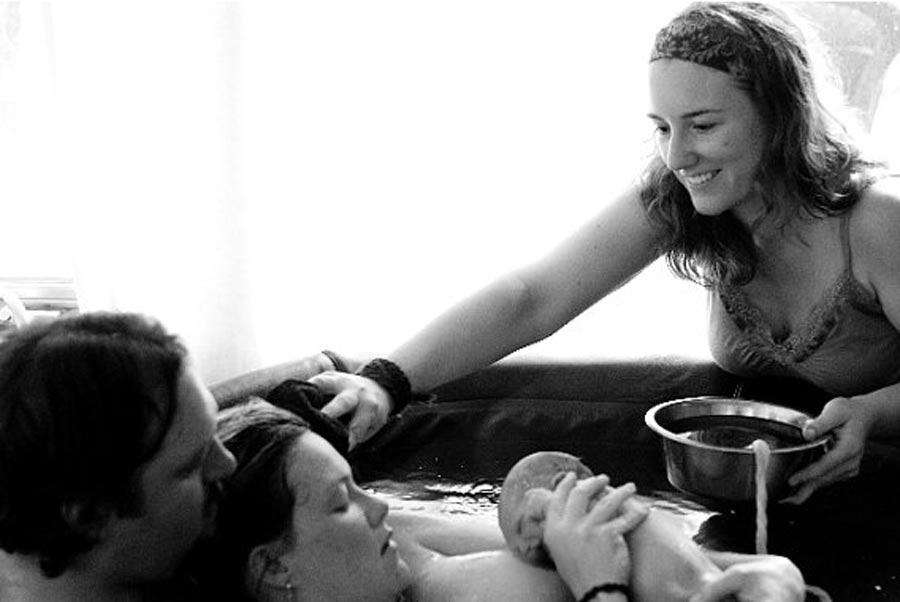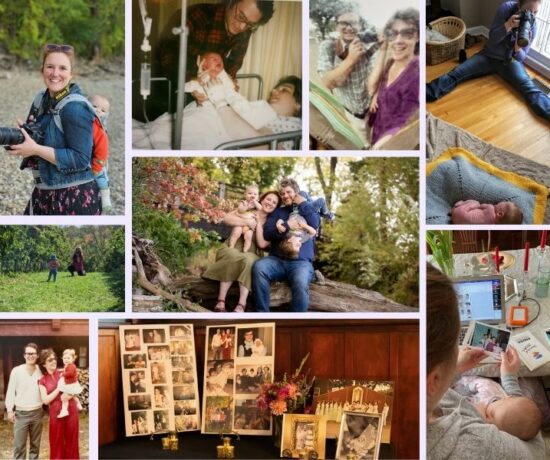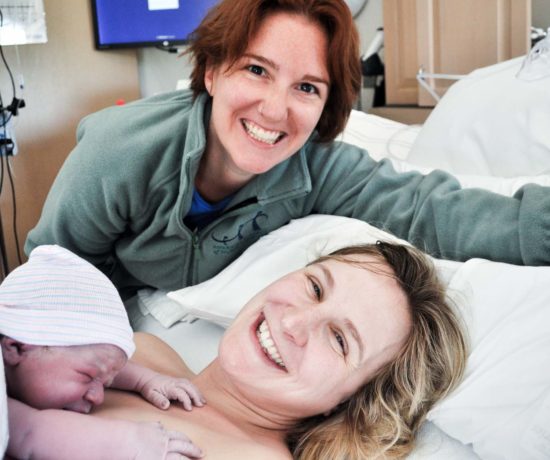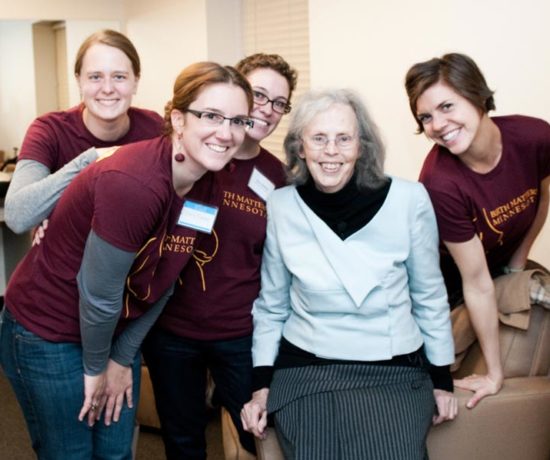There are many folks who think that being a pro-choice midwife is somehow an inconsistency. That to be so close to the brink of new life, and also in support of ending life potential, cannot exist in the same breath. The simple resolution is, they do coexist because many midwives are adamantly pro-choice. But I think the question deserves more than a simple response.
It is National Midwifery Week, and lots of people will be talking about babies and birth and mothers and breastfeeding to celebrate. I am in awe and support of all of those topics, and I’m quick to get choked up over the sight of a new family coming into the light. However, in the context of PlannedParenthoodGate2015, I would like to discuss a different chapter of women’s reproductive lives: actually NOT being mothers.
To start, midwife literally means “With Women.” It does not mean with babies. The specific path to midwifery that I have chosen, nurse-midwifery, allows me to care for women in many contexts outside of pregnancy and birth: well woman care, contraception, treatment of sexually transmitted infections, treatment of straightforward illnesses and medication management, and peri-menopausal/menopausal care.
Many years in a modern woman’s life are spent hosting a uterus of “potential space” — a spot that could hold a baby, but currently does not. Midwives can care for these women in addition to women who are gestating and birthing babies. The primary way that midwives assist women of childbearing age who do NOT wish to become pregnant is to give individualized contraceptive counseling and help the woman find a method that works for her and her lifestyle. There are many considerations that go into this process: health history, sexual habits, insurance and cost, side effect management, and perhaps most importantly, the woman’s overarching fertility goals. Does she want a baby someday? Someday soon? Ever? Or…Never?
Before continuing in this exploration, I would like to disclose personal information that helps me stay unbiased. I have never been pregnant, either intentionally or unintentionally. I come without personal ties to pregnancy or motherhood or abortion rights. I contemplate these issues as a blank slated woman who has borne witness to thousands of women’s reproductive lives.
As that witness, in the confidential setting of an exam room, I know that women’s reproductive lives are very complicated. I have certainly met the woman whose story is “boy meets girl, boy and girl plan life together, girl gets pregnant on the first try” tale, but I would say that a more crooked road to parenthood is the usual path. Some women have unintentionally become pregnant, more than once, and decided to parent those children. Some women were using birth control 100% accurately and got pregnant anyway. Some have had three or four miscarriages before giving birth to a baby they have waited years to meet. Some have blended families with multiple biological parents in the picture. Some had to spend $20,000 on infertility treatments to achieve their goal. And some women–many women–have ended their pregnancies intentionally.
When I hear criticism of Planned Parenthood, the voices are often men, and also women who have (or want) many babies. Negative Planned Parenthood sentiments predate the current fetal tissue discussion, which have certainly imploded in its wake. What I don’t hear is criticism about Planned Parenthood from women who have accessed their many services, or criticism from those of us actually taking care of women.
I understand that abortion is a very complex topic with tangled historical and religious roots, and I do not try and mute that fact. But our current state of polarized value systems is missing a critical realization. De-funding Planned Parenthood won’t end abortion, it will just make it harder to access earlier in pregnancy. Criminalizing abortion won’t end it either, just make it more unsafe and increase the number of maternal suicides in pregnancy. And, the most obvious layer: Planned Parenthood actually prevents abortion by providing affordable access to contraception.
I have been disappointed to find that the midwife voice is largely quiet in the public conversation supporting Planned Parenthood. From menarche (first period) through menopause is a lot of ground to cover on one woman’s sexuality map, and since that is our scope of practice, we are not just there for the baby making years.
Because I’m in women’s charts, because I’m talking to them, because I’m hearing their stories in a safe place, it is loud and clear to me that this chapter of women’s reproductive health is a part of the whole story. And it’s not just the young women and the poor women and the unmarried women or whatever the media has decided is the typical abortion consumer. It’s all women, of all ages and socioeconomic profiles, with all different portraits of motherhood that they have already experienced or hope to experience in the future.
I have caught several babies in midwifery school, and attended the labors and births of hundreds of women prior to entering midwifery as a doula and labor & delivery nurse. Creating a whole new person is a pretty fricking magical thing, and I am not here to demystify the process. I love listening to fetal heartbeats and seeing detailed ultrasound images and feeling babies kick back at me as I touch their mother’s bellies. But me being pro-choice doesn’t take away from that wonderment. It makes me and my many pro-choice midwife colleagues allies to women: come to us for what you need, when you need it. Want me to put in your IUD? Done. Want me to catch your baby? I’m there. Need me to listen while you grieve your miscarriage? I’m with you. Need abortion resources? I will find them.
There are so many elements of this current debate that cannot possibly be tackled in a short essay. The ethics of choice, the financial funding of women’s health services including abortion, the power of distorted media, and human tissue transport for research could (and likely will) be discussions that are book’s length long. But for those who are willing to try and understand, not just shut down the debate, the following resources have helped shape my thoughts:
The New England Journal of Medicine (re: Planned Parenthood)
The New England Journal of Medicine (re: Tissue Research)
Our Choices, Our Lives (Essays from many different women’s abortion experiences)
The week that the current fetal tissue transport debate hit the press, I was standing with a colleague and the miscarried (medical term, “aborted”) tissue of a 14 week fetus. This was not at an abortion clinic, this was in the context of caring for women in all different situations of pregnancy as we find ourselves doing in hospitalized midwifery care. She and I had to discuss what happened next to this tissue, both out of respect to the little being and per institutional protocol. It was so viscerally ironic to me that my first encounter with this expulsed gestational age happened literally the same timeframe that scandal erupted across the nation. It made me realize, those who are screaming against it aren’t in it like me. It’s not just a poster and a prayer on the street, it’s my actual job to deal with it and not just talk about it.
Part of the reason I have never encountered abortion personally is that Planned Parenthood was there for me as a young college student to fill my first Rx for birth control pills. After that, a forward thinking physician well before her time advocated for me to have an IUD, which years later is becoming the standard of care for effectiveness and patient satisfaction. I am glad that my own path towards motherhood was able to be delayed for these years I have been learning to help other women become mothers. And, along the way, learning to clinically support all the experiences that women have shared with me: sex and loss and infections and heartbreak, and abortion too.
You don’t have to like abortion or think it’s a good option, and you most certainly don’t have to have one. I am not here to try and pry you over to the pro-choice side of the fence. But I have to ask: do you really think de-funding Planned Parenthood will solve anything? Are YOU going to fill the health care gap if you shut down Planned Parenthood?
Regardless of your political stance, I guarantee you know someone who has experienced abortion personally, whether or not she’s disclosed it. Most likely, she doesn’t regret it. You just don’t know about it because she doesn’t feel safe telling you. Especially if you are loudly anti-choice.
With women, for a lifetime. – Emily Rumsey, SNM, RN




